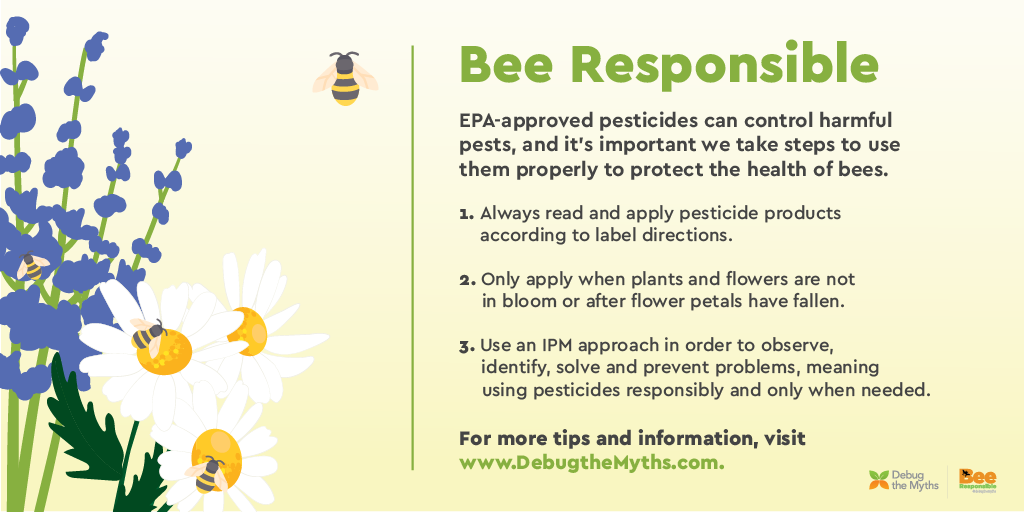Bee Responsible
Bees pollinate more than 16 percent of flowering plant species, including those found in yards, landscapes, and parks in our communities and across the country. Promoting their health is an important priority.
“Bee Responsible” encourages homeowners to learn more about bee health, and how everyone can contribute to their long-term existence.
Government officials and scientists agree bee health is a complicated and long-standing concern—one that dates back to the 1800s. For example, The National Stakeholders Conference on Bee Health in 2013 reported the Varroa mite, a parasite that feeds on bee larva and attaches itself to adult bees, remains the “single most detrimental pest of honey bees.”
The Varroa mite: The Varroa mite is a deadly and destructive parasite that attacks both adult bees and the bee larvae. Researchers are working to develop an effective prevention product to protect bees from the parasite.
By staying educated on the major threats to pollinator health, each of us can do our part to Bee Responsible. Consider making the following changes to help promote pollinator health and keep our environment flourishing.
- Plant pollinator-friendly gardens. You can make pollinator-friendly selections by planting gardens with fruit-bearing trees, hedgerows, flowering shrubs and flowers native to your region. Find what native varieties benefit bee populations in your region, below:
- Proper pesticide use. EPA-approved pesticides, such as neonicotinoids, can control harmful pests and protect the health of bees. However, it is important you read and follow all label directions before applying pesticides.

Follow more of the conversation online with #BeeResponsible.
